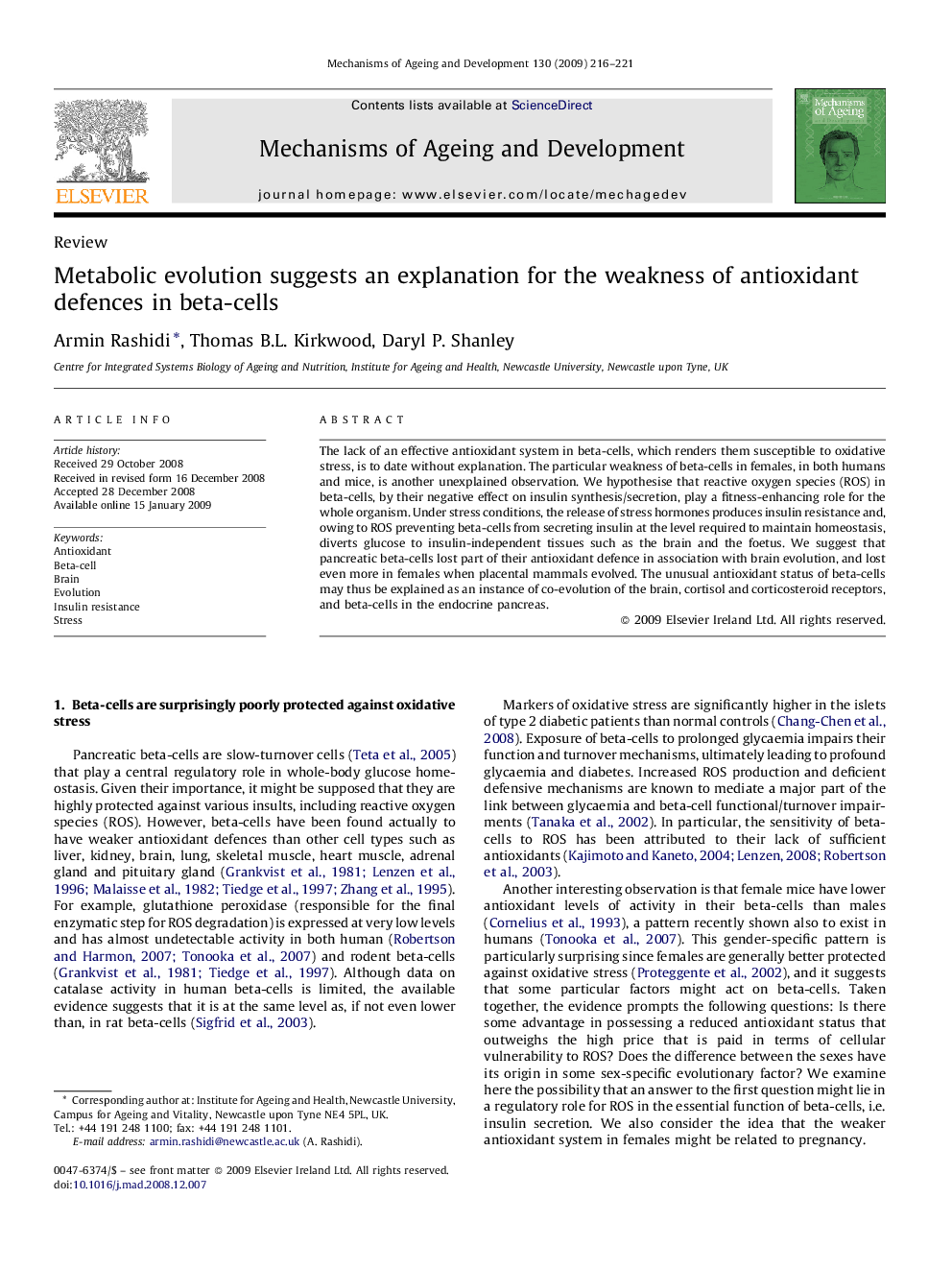| Article ID | Journal | Published Year | Pages | File Type |
|---|---|---|---|---|
| 1919477 | Mechanisms of Ageing and Development | 2009 | 6 Pages |
The lack of an effective antioxidant system in beta-cells, which renders them susceptible to oxidative stress, is to date without explanation. The particular weakness of beta-cells in females, in both humans and mice, is another unexplained observation. We hypothesise that reactive oxygen species (ROS) in beta-cells, by their negative effect on insulin synthesis/secretion, play a fitness-enhancing role for the whole organism. Under stress conditions, the release of stress hormones produces insulin resistance and, owing to ROS preventing beta-cells from secreting insulin at the level required to maintain homeostasis, diverts glucose to insulin-independent tissues such as the brain and the foetus. We suggest that pancreatic beta-cells lost part of their antioxidant defence in association with brain evolution, and lost even more in females when placental mammals evolved. The unusual antioxidant status of beta-cells may thus be explained as an instance of co-evolution of the brain, cortisol and corticosteroid receptors, and beta-cells in the endocrine pancreas.
